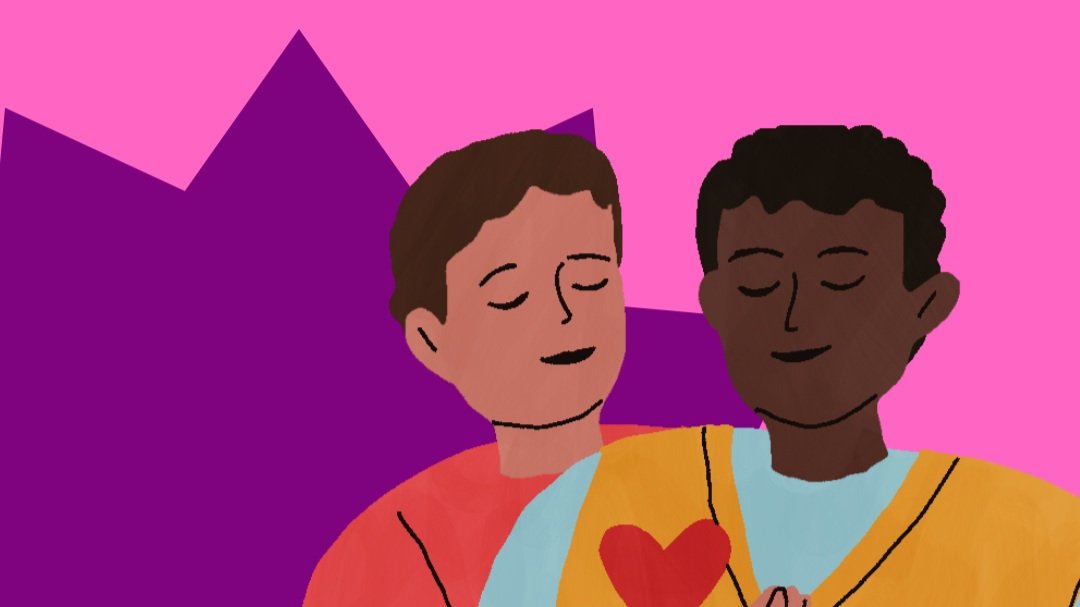Ace Dad Advice: Am I gay or bi?
If you have questions or need advice about asexuality, sex and relationships, send ‘em to acedadadvice@gmail.com.
A writes:
I've read, watched videos, taken tests and I'm still VERY confused about my sexuality...
I know I'm sexually attracted to men, but I'm also sexually attracted to women. Sexually, I am much more attracted to men, but I can be sexually attracted to a particular woman.
Romantically, I don't have much experience; I am demiromantic (maybe even aromatic). I've only fallen in love three times, and all three times I fell in love with women.
I feel like I'm lying if I say I'm bisexual, but I don't think it's right to use gay, because I can be in love with women and sometimes be sexually attracted to one. Also, I'm inexperienced on both: I have never had sex or been in a relationship.
I know I don't have to label myself, but I think I do. I'm trying to come out of the closet, and I think it will help to put a name to my experience even if I don't have to.
Hey A —
Let’s start by talking a little bit about bisexuality.
Bisexuality is an orientation for folks who feel sexual attraction to more than one gender. You don’t have to hit an attraction quota, though. Bisexuality isn’t determined by the percentages of attraction to different genders or the number of people of each gender you find yourself attracted to. If you’re attracted to some men and attracted to some women, you meet the basic criteria for calling yourself bisexual. (I’m not definitively saying this is what I think you should call yourself.)
Now, I want to pull back and deal with your bigger question: what should I call myself?
So, your romantic orientation and your sexual orientation seem to bump against each other in less than harmonious ways. What you’re experiencing might be described by the split attraction model (SAM). The SAM says our belief that all of our attractions are tied together and moving in the same direction is a misunderstanding of how attractions work. It says that our different attractions can work independently and move in different directions. So according to the SAM, your sexual attraction can lean one way while your romantic attraction leans another.
So, do we have language for that? Sure we do. You could describe your sexual orientation as bisexual and your romantic attraction as either demiromantic (as you do above) or demi-heteroromantic (if you think you’ll only ever feel romantic attraction for women.) These words exist for the things you’re feeling. You’re not experiencing something we don’t have language for.
But I sense you’re looking for some language that’s more concise, language that will be more easily digestible to the people around you and the world at large. But you’re anxious about using words that you “don’t really fit” or “don’t fit exactly/correctly/precisely.”
Let me alleviate some of that anxiety. Human sexuality is incredibly complicated. If we created words to specifically describe every variation of human sexual and romantic experience, we’d have a word for each human that every lusted or loved on the planet. The words we use are inevitably broad. They’re destined to be vague. They’re always only describing patterns and themes of experiences — not precisely specific ones.
So you can pick words that feel the most accurate or the most comfortable to you. You can pick the words that you feel will allow other people to see you the most truthfully at a glance. The people closest to you — the ones you develop real, lasting, and authentic relationships with — can learn the specifics through knowing you. But for the broad, general You that brushes up against the world, pick the language that feels authentic and gets it mostly right.
There aren’t wrong answers. You can’t make mistakes. If you want to use different language later, use different language. Labels are tools, not tests.
Think of labels as platforms to stand on so that you can be seen by the world more clearly.

